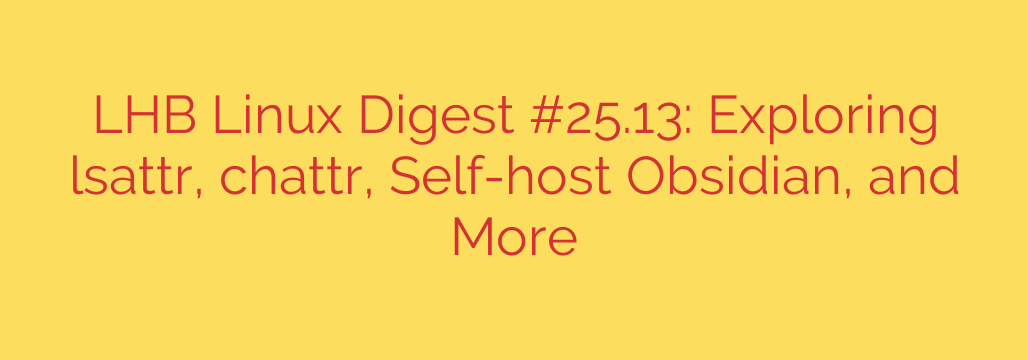
Delving into the power of the Linux command line reveals essential tools that go beyond everyday file management. Among these are the powerful utilities lsattr and chattr, which allow users to inspect and modify extended file attributes. Unlike standard read, write, and execute permissions, these attributes can enforce much deeper restrictions, such as making a file immutable (unchangeable) or only allowing data to be appended. Understanding and using chattr with flags like +i (immutable) or +a (append only) can provide an extra layer of security and control over critical system files or sensitive data. Mastering these commands is key for advanced system administration and file protection on Linux systems.
Beyond system utilities, the world of personal knowledge management is rapidly evolving. For users seeking greater control and privacy over their notes and data, self-hosting applications like Obsidian presents a compelling option. While Obsidian itself is a desktop application, the potential lies in syncing methods. Self-hosting solutions can involve setting up a personal server or using services to synchronize your Obsidian vault across devices without relying on commercial cloud storage. This approach offers enhanced data ownership and potentially faster sync speeds, though it requires more technical setup and ongoing maintenance compared to managed services. Exploring these options is vital for anyone serious about data sovereignty in their digital workflow.
The Linux ecosystem continues to offer versatile tools for diverse needs, from low-level file control with commands like lsattr and chattr to empowering users with self-hosted solutions for modern applications like Obsidian. Staying informed about these capabilities is crucial for leveraging the full potential of open-source platforms.
Source: https://linuxhandbook.com/newsletter/25-13/








